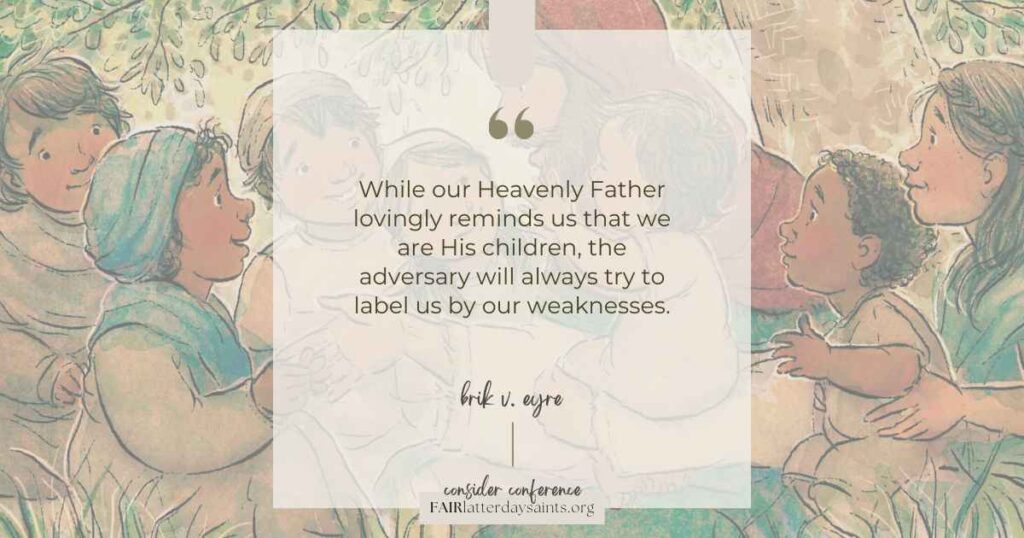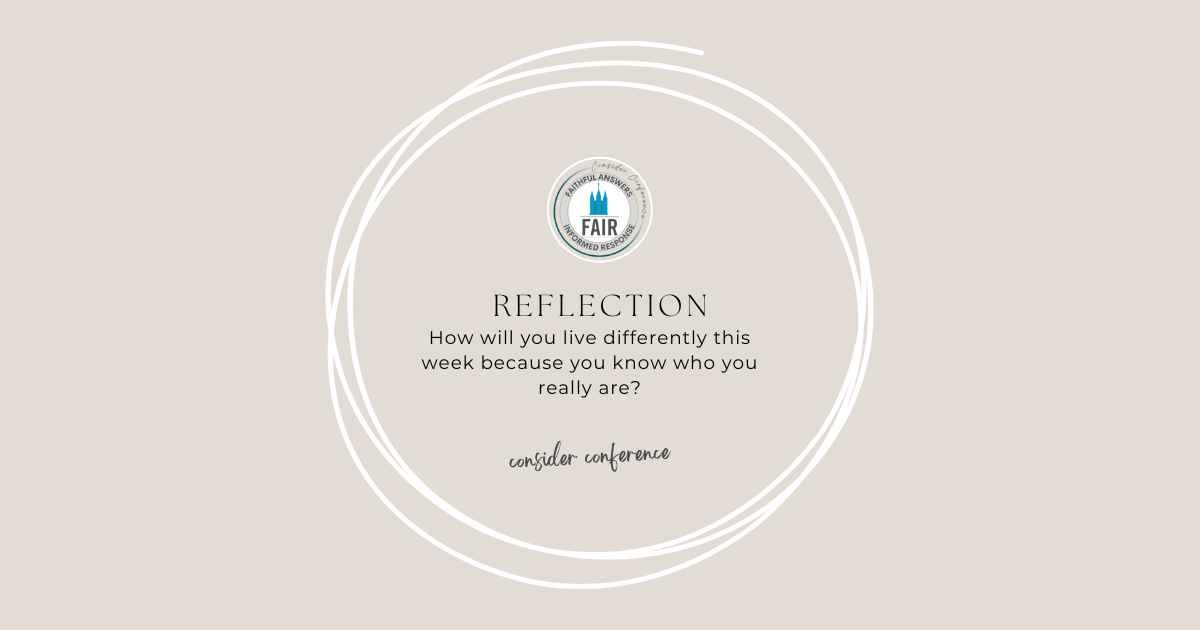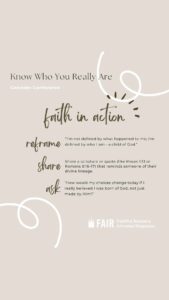
In his October 2025 General Conference address, Elder Brik V. Eyre taught that our lives “will fundamentally change if we better understand who we really are.” He testified that we are not accidents of creation or mere products of circumstance—we are beloved sons and daughters of God, endowed with divine potential and accountability.
Some faith traditions see humanity primarily as creations of God—beautiful, but passive. Elder Eyre reminds us that the restored gospel restores a higher truth: we are children of God, heirs with Christ. That single shift in identity changes everything—from how we face trials to how we use our agency.
“We must seek validation vertically, not horizontally. And as we do, we too can boldly proclaim, ‘I am a child of God.” — Elder Brik V. Eyre

Common Criticism: “If God made me this way, how can He hold me accountable?”
In a world shaped by victimhood and self-definition, some wonder whether personal accountability is fair. “If God created me with these tendencies or challenges,” the reasoning goes, “then He’s responsible for my choices and outcomes.”
This view can make us feel powerless—defined by biology, upbringing, or circumstance—rather than divine design. It assumes that identity is static, not eternal.
Fallacy at Work: The Fatalism Fallacy
The Fatalism Fallacy is the mistaken belief that our choices don’t matter because everything—including who we are—has already been decided.
Fatalism whispers that agency is an illusion. It treats human beings as programmed outcomes of creation rather than participants of divine parentage. Applied to faith, it mistakes God’s authorship for authorship without consent: if He “made” us, then we cannot act for ourselves.
Elder Eyre’s message refutes that completely. Our Father in Heaven did not manufacture us; He fathered us. Children inherit divine capacity. Creation makes objects; parenthood makes agents. To be God’s child is to share, in embryo, His creative power—the ability to choose, grow, and become.
Resolving this Fallacy: The restored gospel’s doctrine of divine identity transforms accountability into empowerment. Because we are God’s children, not His puppets, we are capable of growth beyond our circumstances. The adversary whispers, “You’re never going to get better—this is who you’ll always be.” But divine truth replies, “You are a child of God—this is who you are becoming.”
Agency is not punishment; it is privilege. The Father’s plan was never to trap us in weakness but to teach us to act, repent, and progress. As Elder Eyre testified, “The adversary will always try to label us by our weaknesses, but Heavenly Father consistently and lovingly reminds us that we are His children.”
“While our Heavenly Father lovingly reminds us that we are His children, the adversary will always try to label us by our weaknesses.” — Elder Brik V. Eyre
Living Apologetics: Identity That Empowers Agency
A frequent misconception is that faith in divine identity means blind obedience—that if God is our Father, He dictates our lives. Elder Eyre flips that narrative. Knowing we are children of God gives us both the courage and the responsibility to act.
Our divine inheritance is not exemption from struggle; it is the endowment of power to grow through it. Christ’s Atonement makes that growth possible, and prayer connects us to the source of it.
- If someone says: “If God made me this way, I shouldn’t have to change.”
- You can respond: “He didn’t just make you—He begot you. As His child, you have divine DNA. That means you’re not trapped by what is—you’re invited to become something more.”
Ways to Apply Today:
1️⃣ Seek validation vertically. Before scrolling, comparing, or apologizing for who you are, spend time “being with God.” Let Him remind you of who you are to Him.
2️⃣ Replace labels with lineage. When you catch yourself thinking, “I’m just not good at…,” reframe: “I’m a child of God learning to…”
3️⃣ Act from identity, not insecurity. Make one decision today that reflects divine potential rather than fear or habit.
Keep This Talk With You
Understanding divine identity is the foundation of divine destiny. Elder Eyre’s invitation is not merely to believe in God, but to believe God when He tells us who we are.
Remember: creation defines existence; sonship defines becoming.
When you feel unworthy, uncertain, or overwhelmed, repeat Moses’s declaration: “Who art thou? For behold, I am a son [or daughter] of God.” (Moses 1:13.) That truth banishes shame, restores agency, and anchors hope.
This week, try one small step:
- Write in your journal the sentence, “I am a child of God, therefore I can choose.”
- In prayer, ask not only for help but for remembrance—of who you are, and whose you are.
- When you see others struggling, remind them of their divine heritage, not their human limitations.
How will you live differently this week because you know who you really are?

The Consider Conference series by FAIR offers an in-depth look at recent General Conference talks to help members of the Church of Jesus Christ of Latter-day Saints navigate common questions, misunderstandings, and criticisms. Each post provides doctrinal insights, historical context, and practical ways to apply gospel principles in everyday conversations. Through this series, we hope to equip readers with faith-promoting resources that encourage thoughtful reflection, respectful dialogue, and a stronger foundation in gospel truths, fostering both personal conviction and meaningful discussions with others.
The post Know Who You Really Are appeared first on FAIR.
Continue reading at the original source →




